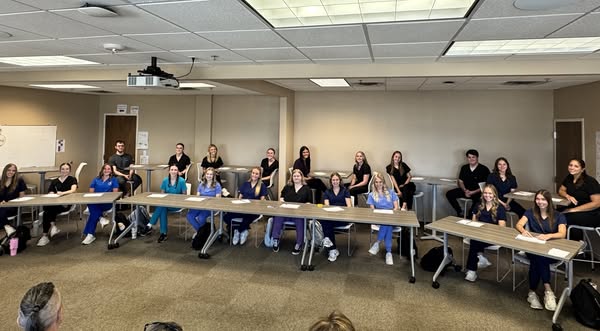AP Classes: Student Review
With class registration for the 2018-2019 school year is just around the corner, a common question that many seniors get asked if should I take this AP class? AP classes are meant to mimic a college course class and in May students have the option to receive college credit if they receive a high score on the test. AP classes are meant to be rigorous in an effort to better prepare students for college level classes in the future.
Students should consider their strengths, weaknesses, work ethic, grades, and interest level on different subjects when registering for classes. Teachers and staff sometimes do not provide the full story about AP classes, so myself, including seniors Max Christopherson and Grace Cline put together a student review of AP classes offered at the high school.
Social Studies department:
AP World History: A sophomore class that provides general details about the world and 10,000 years worth of history in one school year. This class does provide a step up in workload compared to AP Human Geography, but it provides excellent information about world history. According to Cline this class was one of the “best class I have ever taken in my entire life.”
AP United States History: This course is taken by students in their junior year and focuses on American history from the exploration of Columbus to current issues in America. Christopherson claims that that this class was “more detailed than World History but still a good class to take.”
AP Government: This class is one of the two AP social studies options seniors can take. AP Government combines the knowledge from APUSH to create a better understanding of the United States government system. Cline states that “it reinforced her knowledge of government, which is especially important because most people in the class can vote now.”
AP Economics: This is the other AP social studies class offered to seniors. The class focuses on both Microeconomics and Macroeconomics, explaining the way that markets work and how the United States economy works. Excellent class for students wanting to go into business.
English Department:
Pre-AP English: A higher level English course offered to Sophomores who wish to learn more about writing and analyzing. Pre-AP helps students transition easily into AP English the following year. Cline, Christopherson, and myself concur that this is “the best class I have ever taken in my entire life.”
AP Language and Composition: A junior level class that utilizes the skills learned in Pre-AP English to examine famous American literature, as well as, refine student’s writing skills through papers and projects.
AP Literature and Composition: Senior level English class that builds off of the concepts taught in AP Language and Composition, but focuses more on independent reading and the impacts of literature. Cline states that the class offers“wide variety of classic literature and poetry.”
Science Department:
AP Biology: This Sophomore class is more rigorous than Honors 9 Science in that it goes into details about biology and more assignments are given to students. A relatively new AP class offered at the high school, that possess differing views from students. According to Christopherson who enjoyed the class warns that “you really learn a lot just need to be prepared to work.”
S2S Chemistry: Even though this isn’t an official AP class, students in this class can earn college credit through the University of Minnesota system. The class differs from general or honors chemistry in that it goes more in depth and conducts rigorous labs.
Honors Physics: Even though the high school also offers S2S Physics, this honors class goes through material often seen on AP tests and prepares students to take up to 3 AP tests at the end of the year. Christopherson claims that the class is “very difficult but fun if you like puzzles.” Both the S2S and honors classes offer college credit but learn at different rates, so keep this in mind when deciding between the two.
Math Department:
Pre-Calculus: This class takes knowledge from Algebra I and II into more complex problems and steps than learned previously. The class also exposes students to Calculus basics for the next year. According to Cline she is “I’m glad she took it” because of the exposure to calculus.
AP Calculus: Builds off of the basic concepts learned in Pre-Calc in order to learn a greater variety of math solutions and different aspects of math than students have previously been exposed to.
AP Statistics: Focus on a different category in math, that students have learned the basics of in previous math classes. The class utilizes projects and AP style tests to prepare students for the big test in May, as well as, reinforce the knowledge. Both Cline and Christopherson concur that “a great senior year class to take”







